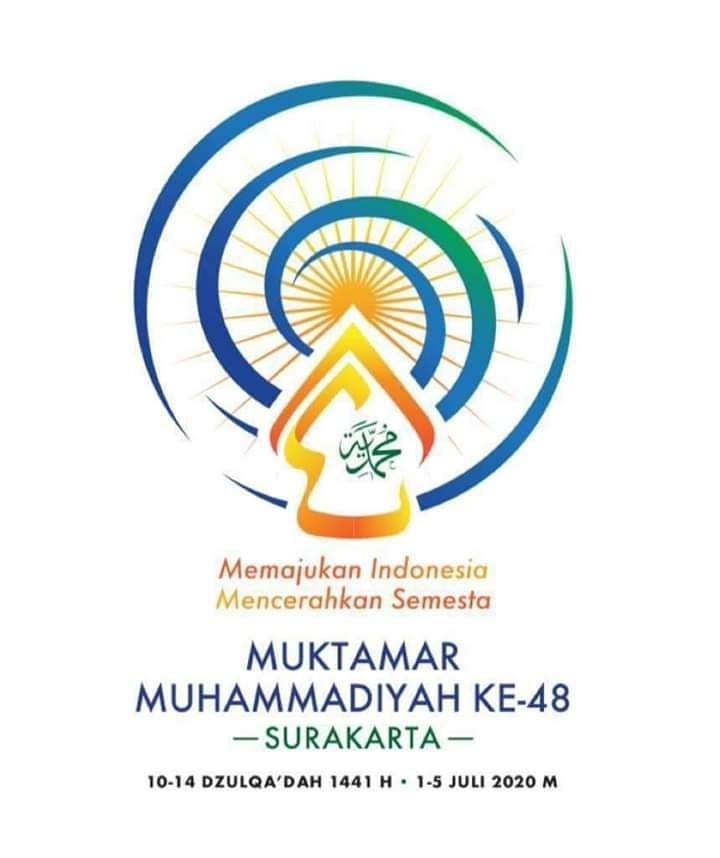MUHAMMADIYAH.ID, MADRID – General Chairman of the Central Board of Muhammadiyah Haedar Nashir attended and delivered a speech in an international meeting of a ‘Peace with No Borders: Religions and Culture in Dialogue’ conducted by Community of Sant’Egidio in Madrid, 15-16 September 2019. Besides Haedar, the other Muhammadiyah figures participated in the forum, namely Former General Chairman of Muhammadiyah Prof. Din Syamsudin, General Chairwoman of ‘Aisyiyah Siti Noordjannah Djohantini, and General Secretary of Muhammadiyah Abdul Mu’ti.
Speakers of the forum raising a theme of ‘No One Should Ever Be Excluded’ were General Chairman of the Central Board of Muhammadiyah Haedar Nashir; an Italian writer Simonetta Agnelo Hornby; a writer Grégoire Ahongbonon; Founder of the Association "Saint Camille de Lellis" Benin Eugenio Bernardini; Former Moderator of the Waldensian Table, Italy, Colette Guiebre; BRAVO Program Coordinator, Community of Sant'Egidio, U.S. Comissioner on International Religious Freedom, the USA Burkina Faso Johnnie Moore; and Daniel Sperber Rabbi from "Bar Ilan" University, Israel.
Haedar presented that the United Nations Universal Declaration of Human Rights (UDHR) states that “all human beings are born free and equal in dignity and rights. They are endowed with reason and conscience and should act towards one another in a spirit of brotherhood.” The Universal Declaration also states that “everyone is entitled to all the rights and freedoms ... without any distinction of any kind, such as race, color, sex, language, religion, political or other opinion, national or social origin, property, birth or other status.”
Warranting the fundamental right of every human being to life wherever they live, the Declaration asserts that “everyone has the right to life, liberty and security of person.” The Declaration further affirms the right to freedom from slavery, proclaiming that “no one shall be held in slavery or servitude; slavery and the slave trade shall be prohibited in all their forms.” Freedom from torture and degrading treatment is also proclaimed in the Declaration. It states that “no one shall be subjected to torture or to cruel, inhuman or degrading treatment or punishment.”
“With such universal human rights being recognized by the United Nations, all people, ethnic groups, nations, and states, wherever they are, need to commonly have a commitment to treat everyone all over the world as equal and give equal protection against any discrimination and ill treatment in any name,” asserted Haedar on Tuesday (17/9).
In religious commitment, Haedar added that religion has been universally important and fundamental to human beings. In the midst of this profane, worldly life, religion serves as “a unified system of belief and practices relative to sacred things ... beliefs and practices which unite into one single moral community ... all those who adhere to them” (Durkheim, 1912).
Even in this secularized modern society, religion remains relevant and important to our life, despite its more implicit expression and actualization, and the existing separation between public and religious domains (Wilson, 1966).
“The greatest challenge for religious communities is for every religion to put its sacred, high values into practice in order to create a more just, peaceful and excellent life that can lead human beings to a happy and safe shared life,” emphasized Haedar.
In reality, one can still find conflicts, violence and social discrimination promoted in the name of religion, bringing about social disintegration. Today global and local communities still witness racism, inhuman treatment to minorities, gender bias, human trafficking, violence toward the weak, terrorism in any form, discrimination, and other acts detrimental to human life and environment.
“Religious communities need to prove that their moral commitment is helpful enough to face and provide solutions to human problems to the point that their religions can serve as a prophetic, driving force for transformation that generate kindness, peace, security, happiness, wellbeing, and multi-faceted benefits in human life all over the world,” conveyed Haedar.
In particular, as the manifestation of virtuous, religious values, peaceful life that is free from segregation and discrimination needs to be actualized.
“Religions religious communities across the globe should strengthen their commitment to build a more peaceful, advanced life. Religious communities should be committed to voice and actualize harmony, tolerance, mutual respect, peace, justice, and collaboration in sustaining our shared life that is free from discrimination, violence, oppression, terror, war, and any other degrading treatment,” maintained Haedar.
It is important for religious communities all over the world to promote universal moral values of peaceful living without any kind of discrimination and violence, with the intention of making it the primary attention as well as collective practice of all communities and nations.
In this regard, it is important to accomplish the following three notions. First, it is broadening socio-religious movements working on peace and coexistence, which can provide a role model of the implementation of religious teachings regarding peace and coexistence, so that normative messages of religions can be considered as meaningful and applicable. Second, it is building peace and non-discrimination as a socio-cultural ethics in our global, social life. Third, it is encouraging every state and government to strengthen their commitment to human rights, particularly the rights of everyone to just treatment, peace, non-discrimination and non-violence.
“In addition to justice (‘adl), every Muslim is taught to do iḥsan, i.e. to obtain excellence in doing good deeds. Justice and iḥsan should be shown to anyone, even to those one hates, as insisted in Al-Ma’idah, verse 8,” explained Haedar.
“Islam also teaches Muslims to spread mercy and love to all human beings and other God’s creatures in the universe,” inserted Haedar.


